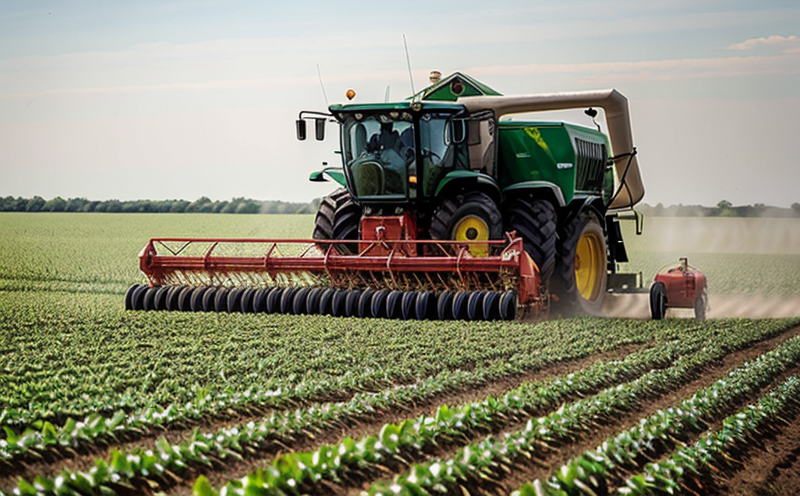Crop Stress Tolerance Testing (Heat)
The ability of crops to withstand heat stress is critical in ensuring global food security. Heat stress can significantly impact crop yield and productivity by reducing photosynthetic efficiency, altering biochemical processes, and affecting overall plant health. Understanding the tolerance levels of different crops under heat stress conditions allows for better breeding programs, cultivation practices, and pest management strategies.
At Eurolab, we offer comprehensive Crop Stress Tolerance Testing (Heat) services to help clients assess how well their crops can withstand high temperatures. This testing is particularly important in regions prone to climate change-induced temperature fluctuations. Our service involves a series of controlled experiments that simulate various levels of heat stress to evaluate the physiological responses and adaptability of different crop varieties.
The process begins with the selection of appropriate specimens, ensuring they are representative of the target population. Specimens are then subjected to controlled environmental conditions within our state-of-the-art laboratories, which can replicate real-world stress scenarios. By monitoring key parameters such as leaf chlorophyll content, stomatal conductance, and water use efficiency, we provide detailed insights into crop resilience.
Our team of experts uses advanced instrumentation and software tools to analyze data collected during the testing process. This includes spectrophotometers for measuring chlorophyll fluorescence, gas exchange systems for determining photosynthetic rates, and thermocouples for precise temperature control. Reporting is comprehensive, providing not only numerical results but also graphical representations that help visualize stress tolerance levels across different environments.
By leveraging these detailed assessments, our clients gain valuable information about which crop varieties are best suited for particular climatic conditions. This knowledge can guide decision-making processes related to seed selection, irrigation scheduling, and other agricultural practices aimed at maximizing yield under challenging environmental factors.
Scope and Methodology
| Parameter | Description |
|---|---|
| Climatic Variables | Temperature, humidity, solar radiation |
| Crop Specimen Selection | Representative samples from diverse genetic backgrounds |
| Stress Conditions Simulation | Controlled environment chambers capable of varying temperature and humidity levels |
| Data Collection Tools | Spectrophotometers, gas exchange systems, thermocouples |
| Analytical Methods | Chlorophyll fluorescence measurement, photosynthetic rate determination, stomatal conductance assessment |
The methodology employed ensures accurate and reliable data collection under strictly controlled conditions. This approach allows us to simulate real-world heat stress scenarios effectively while minimizing variables that could otherwise confound the results.
Eurolab Advantages
- Accurate Data Collection: Utilizing advanced instrumentation and software ensures precise measurement of key parameters.
- Detailed Reporting: Comprehensive reports include both quantitative data and graphical representations for easy interpretation.
- Comprehensive Analysis: Our team of experts provides in-depth analysis and recommendations based on the results obtained.
- Industry Expertise: With years of experience, our staff has the knowledge to provide tailored solutions for various crop types.
Eurolab’s commitment to excellence sets us apart as a leader in Crop Stress Tolerance Testing (Heat). Our rigorous testing protocols and dedication to providing accurate results make us the preferred choice among quality managers, compliance officers, R&D engineers, and procurement specialists.
Use Cases and Application Examples
- Breeding Programs: Identify heat-tolerant varieties through controlled stress testing.
- Cultivation Practices: Optimize irrigation schedules based on crop response to heat stress.
- Pest Management: Develop strategies that account for increased thermal stress on pests and beneficial insects.
- Educational Institutions: Conduct research focused on understanding the impacts of climate change on agriculture.
- Government Agencies: Provide data supporting policy decisions aimed at enhancing food security in heat-prone regions.
- Non-Governmental Organizations: Assist in humanitarian efforts by ensuring crop resilience against extreme weather events.
The insights gained from our Crop Stress Tolerance Testing (Heat) are invaluable for stakeholders across the agricultural sector. By integrating this information into their operations, organizations can make informed decisions that lead to improved productivity and sustainability.





